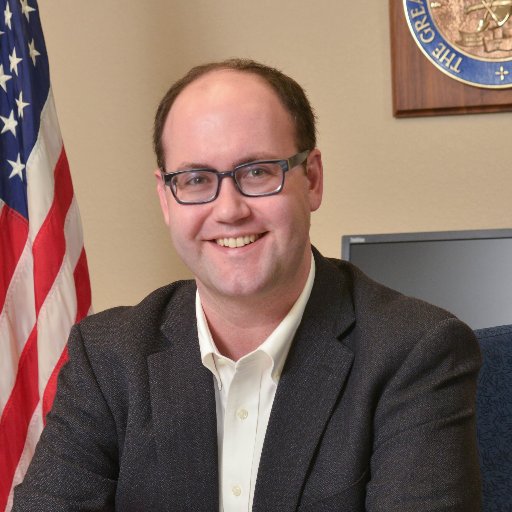When Harvard political philosopher Harvey Mansfield reflected on the work of Niccolò Machiavelli five centuries after the founder of modern political science wrote his treatise The Prince, he focused on a concept that embodied Machiavelli’s view of the intersection of morality and politics: verità effettuale, or “effectual truth.” Machiavelli did not encourage villainy, as his popular reputation holds, so much as he counseled the reconciliation of politics to the nature of man and his modern institutions. Truth might emerge, right might be done, but usually through means that were not the profession of truthfulness in its own right.
The original political scientist still has much to teach us. We probably would always want for candor in politics. Today, our laws and institutions often do not make it any easier. This is evident in policy debates over energy projects, any individual piece of which routinely faces significant opposition. And when opponents emerge, making their case in the formal legal channels designated for that purpose, their arguments are often pretextual. These advocates aim to effect their truth in a roundabout way.
When siting or permitting an energy project, the typical landowner involved primarily cares about how his property will be affected. Yet this is frequently not the paramount legal consideration of the responsible institutions of government. The public convenience and necessity laws that guide most siting proceedings inquire whether an energy project is needed to expand or improve service to customers. Public utility regulation determines the particulars of a project’s economic proposition. Federal environmental reviews require agencies to consider alternatives to a proposed land use to maximize its social value. None of this trio has at its core the local interests of landowners whose real end is to protect their property from the effects of energy projects they would rather not see on, beneath, or near their land.
The fruits of this mismatch are battles fought in language tailored to a particular venue, instead of a process that allows landowners to speak their opinions on their own terms. Let us consider a few examples.
- A landowner with a picturesque view hires an electrical engineer to challenge a utility’s assertion that a nearby transmission line is necessary, arguing for various reconfigurations of the utility grid that would substitute for the line. Faced with a rival expert, the utility re-sites the line along a route whose landowners are not likely to hire expert witnesses to foil them in a regulatory process designed to ascertain “public convenience and necessity.”
- A regulatory commission is charged with deciding whether the entities developing a wind farm in southwestern Montana are locally owned in an effort to determine the project’s eligibility for a carve-out in the state’s renewable portfolio standard. Several local landowners believe the wind farm will blight the area and ruin their views. They intervene, filing lengthy written comments about corporate law and governance.
- A religious order objects to a natural-gas pipeline that would cross its land. The resulting litigation, Adorers of the Blood of Christ v. Federal Energy Regulatory Commission, relies on the Religious Freedom Restoration Act’s requirement that government “not substantially burden a person’s exercise of religion.” The sisters contend that as adherents to Pope Francis’ environmental-justice encyclical Laudato Si’, their free exercise of religion—more than mere landowner rights—gives them a cause to stop the pipeline.
- Midwestern landowners challenge whether an electric transmission line that would bring renewable energy from the windy Midwest to less-windy Appalachia, passing through another state in the process, is really a “public utility” as the term was meant when codified in the early 20th century, since the transmission company does not provide service on a retail basis in the pass-through state.
It is possible that these individuals care about the details of voltage stability and that nuns feel doctrinally obliged to oppose natural-gas infrastructure. It is more likely, however, that they seek to undermine the energy infrastructure in question by simply attaching themselves to legal arguments that might achieve their ends.
This is not a recipe for good government. Many, indeed perhaps most, siting processes for energy infrastructure now feature stated concerns that are a pretext for the genuine concerns of objecting parties. This is not to say that objectors are being disingenuous—far from it; they are playing the game as it has been created for them. This phenomenon should cause those in the policy world, however, to consider the deep truth of a popular maxim: Don’t hate the player, hate the game.
Many siting processes for energy infrastructure now feature stated concerns that are a pretext for the genuine concerns of objecting parties. This is not to say that objectors are being disingenuous—far from it; they are playing the game as it has been created for them.
Our politics is broken when it does not allow its participants to state their ends with candor. In this regard, a principal aim of any reform of siting and environmental policy should be to ensure genuine concerns can be efficiently but carefully addressed. This means reforming institutional culture from within, but it also means doing what we can to promote negotiations around the core concerns of those who own property and those who wish to use it for energy infrastructure.
One could start with laws and regulations that reward procedural fights or showcase subject matter that is ancillary to landowner concerns. It would be far better to reorient these laws to promote bargaining. For example, siting processes for linear infrastructure that require the consent of a supermajority of landowners would be better than a regulator’s decree of “necessity” to trigger the recourse of eminent domain throughout the route. Likewise, creating a property rights structure whereby land is valued not just in situ but under which people can also obtain easements for viewsheds would be an important protection for property of the New West, whose value is tied up in the aesthetics of its larger place.
Meanwhile, regulators should consider the wisdom of Leo Strauss. “The context in which a statement occurs,” Strauss once wrote, “must be perfectly understood before an interpretation of the statement can reasonably claim to be adequate or even correct.” Regulators should excavate the real motivation of opponents to energy infrastructure and encourage developers and their opponents to reach a resolution that addresses the latter’s true aims. The appropriate way to address these concerns is first to identify them and respect them, and then create a policy environment in which they can be valued and resolved by something other than a decree.




